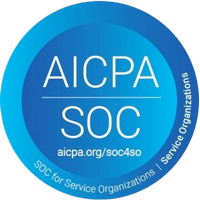You’re on a journey to staff your business successfully. Part of that journey is finding the right tools to help your team along the way. You might’ve encountered recruitment automation software that promises to make recruiting easier and quicker than ever. But how can recruitment software help you?
We’re going to look more closely at recruitment automation software, explaining exactly what it is, why it might help you staff, and how it’s shaking things up in healthcare hiring.
What Is Recruitment Automation Software?
Recruitment automation software is an umbrella term to describe any tools that complete parts of your recruiting process automatically.
This includes tools that can automatically:
- Engage potential candidates through a chatbot
- Distribute job descriptions and ads to job sites
- Move candidates through your recruiting workflow
- Send candidates emails or texts
- Schedule interviews
- Manage background checks and license verification
- Enhance data-driven decision-making, such as diagnosing bottlenecks in the pipeline
- Reduce bias by removing human judgment from some aspects of recruitment and ensuring candidates are selected on the basis of skills, qualifications, and experience
How Automation Will Change Healthcare Hiring for Good
As recruitment automation software gets more popular, we can expect some big changes in healthcare hiring. At the moment, time-to-hire in healthcare is quite slow compared to most industries and requires a substantial amount of manual work. Automation can change this.
Here are a few of the biggest ways automation will change hiring.
Quicker Hiring
Right now, the average time-to-fill healthcare roles is around 49 days. One of recruiting automation’s biggest promises is that it will help employers hire faster.
At Apploi, we’ve seen the results of automation firsthand. When our customers use our automated candidate sourcing tools long-term, their days-to-hire drops by an average of 71%. There’s good reason to think automation really will reduce time-to-hire across the industry.
While different recruitment automation software offers different features, here are a few of the things that automation can do to speed up hiring:
- Distribute jobs to dozens of sites simultaneously
- Instantly ask candidates to schedule an interview
- Pick out top candidates based on pre-screening questions.
- Update application statuses
- Manage integrated background checks
- Verify credentials and licenses so there’s less work employers need to handle manually
Different Jobs for Recruiters
Recruitment automation software can take over a lot of the manual work that comes with hiring. Because of this, recruiters (and anyone involved with hiring) will be able to refocus on other areas.
SHRM estimates that about 90% of recruiters’ current tasks could be automated in the future. But that doesn’t mean recruiting will be an obsolete job. Far from it—people involved with recruiting will need to spend more time handling tasks that software can’t manage. On top of that, recruitment and HR teams will also need to manage the software itself and make sure it’s working correctly.
After recruitment automation software takes over many repetitive tasks, recruiters and HR workers will have more time to focus on:
- Recruitment marketing
- Managing their business’s reputation
- Employee retention
- Using insights about promotion and turnover to plan the next round of recruitment
- Employer branding
- Ensuring new hires are placed in the right facilities
- Interviewing and other qualitative candidate evaluation
Emphasizing Company Culture
As healthcare employers compete for the same workers and adopt more and more tools to help them do so, a healthy company culture is becoming even more important. Recruitment automation software can improve communication, but it can’t solve every culture problem. To get candidates to actually accept job offers (and apply in the first place), employers need to address culture.
It’s been a traumatic couple of years for clinical workers. Now, candidates are less willing than ever to take a job where they’ll be stretched to the limits. Even huge sign-on bonuses don’t attract candidates if they have a negative impression of the company culture. Money matters, but it can’t replace health, safety, respect, or protection.
Making a speedy offer is step one to successful staffing. Showing that you’ll create a sustainable and healthy work environment is step two.
More Focus on the Interview
If you’re moving towards an automated recruiting process, the interview might be the first time you deeply focus on a specific candidate. This naturally puts more emphasis on the interview as the moment when recruiters can connect with a candidate and understand their background.
Luckily, with automation, HR workers and recruiters will have more time and energy to spend on these meetings. As automation takes over manual tasks, in-depth interviews are one place where workers can refocus their attention.
Happier Candidates
Candidates want to know where they stand. In other words, they want updates about their applications, clear hiring timelines, and feedback even if they don’t get a role. But according to job seekers, employers are getting worse at communicating.
Recruitment automation software can transform this aspect of recruiting. With automated communication, you can stay in touch with every candidate, including ones who don’t get a job. You can’t automate personalized feedback, but you will be able to keep the line of communication friendly and professional.
More Repeat Applicants
Just as automation improves communication with candidates, it also improves candidate experience. Nobody wants to feel ignored or abandoned while waiting to hear back from an employer. If you can avoid this, you’re on your way to a better employer reputation.
Staying in touch can really improve the odds that candidates will apply to your jobs in the future. After getting a job rejection, 52% of candidates who get feedback say they’re more likely to continue a relationship with the employer.
Recruitment automation software can also make it easier for employers to hire past applicants.
- If your automation is connected to an applicant tracking system, you’ll be able to access that candidate’s records
- With digital communication records you can review your last interaction with a candidate
- You can automate communication with past applicants to share new opportunities
Automating Your Recruiting With Apploi
Apploi is your secret weapon for quicker healthcare staffing. We help employers source candidates, streamline hiring, and onboard new recruits. Protect your team’s time with instant job distribution, quick apply, integrated background checks and licensure verification, and automated workflows.
Interested in learning more about how you can recruit, hire, and onboard healthcare staff quickly? Contact us today for a free demo of our end-to-end talent management solution.





